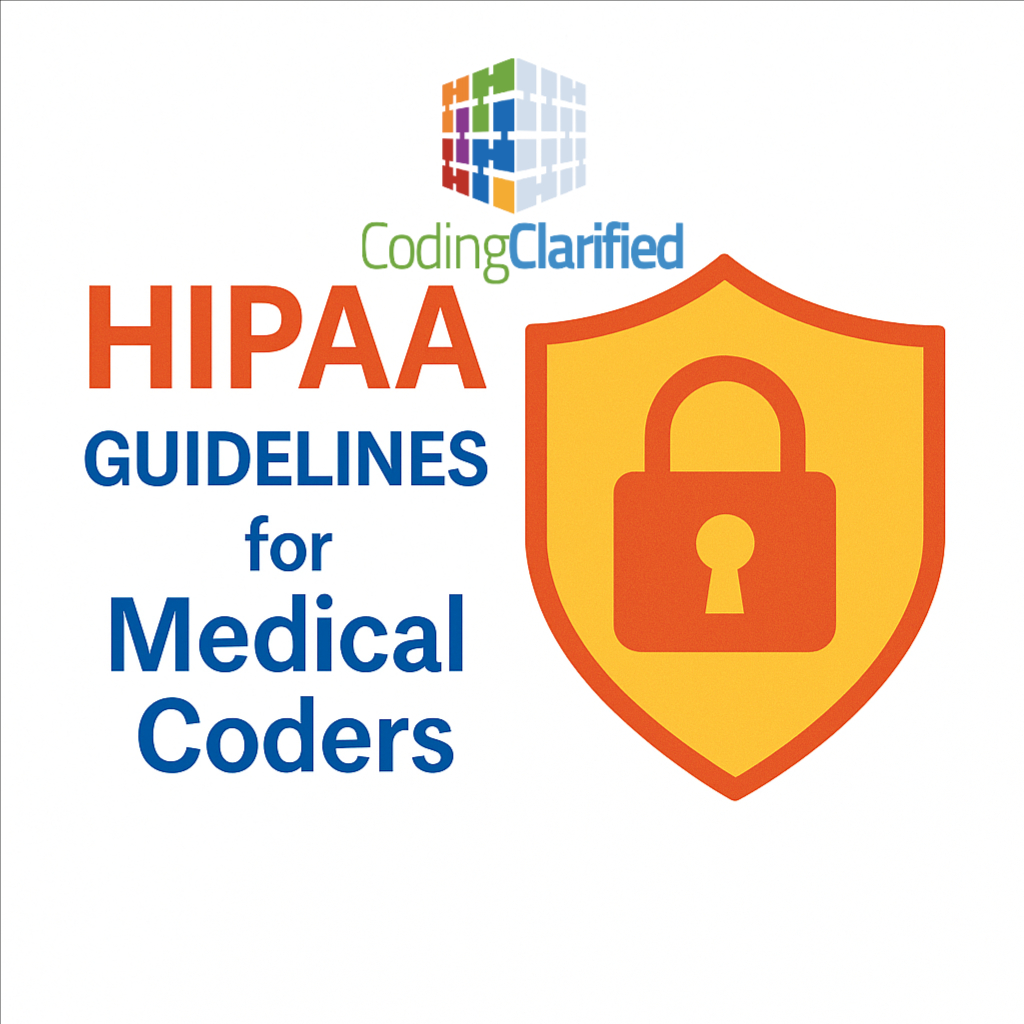HIPAA Guidelines and Tips for Medical Coders
Understanding HIPAA in Medical Coding
The Health Insurance Portability and Accountability Act (HIPAA) was established in 1996 to protect patient health information and ensure confidentiality in healthcare. For medical coding and HIPAA compliance is not just a legal requirement—it’s a professional responsibility that impacts every step of the coding and billing process.
Medical coders routinely handle Protected Health Information (PHI), which includes details like patient names, medical record numbers, diagnosis codes, and treatment data. Mishandling this information—even unintentionally—can lead to serious penalties for both the coder and the healthcare organization. HIPAA
Key HIPAA Privacy and Security Rules
-
Privacy Rule
The Privacy Rule governs how PHI can be used and disclosed. Coders should only access patient information necessary for job-related tasks. Sharing information with unauthorized individuals—even coworkers—can violate HIPAA. -
Security Rule
The Security Rule focuses on safeguarding electronic PHI (ePHI). This includes protecting health data stored in electronic health record (EHR) systems, transmitted through emails, or accessed remotely. -
Minimum Necessary Standard
HIPAA mandates that coders access the “minimum necessary” information to perform their duties. For example, reviewing a complete patient chart is unnecessary if only a specific service or date of service requires coding. -
Breach Notification Rule
If PHI is compromised (e.g., through hacking, lost devices, or unauthorized access), healthcare entities must notify affected individuals, HHS, and sometimes the media. Coders should report any potential breach immediately to their compliance department.
HIPAA Compliance Tips for Medical Coders
-
Use Secure Systems Only
Always log into approved, encrypted systems for EHR and billing. Avoid storing patient data on personal devices or external drives. -
Never Share Login Credentials
Each coder must use their unique login credentials. Sharing usernames or passwords—even temporarily—can lead to compliance violations. -
Maintain Workspace Privacy
Keep computer screens out of public view and log out when leaving your desk. Avoid discussing PHI in hallways, elevators, or public areas. -
Email and Communication Caution
Do not send PHI through unsecured email or messaging systems. Use approved encrypted communication platforms when necessary. -
Avoid “Curiosity Access”
Accessing records of friends, family, or celebrities without a legitimate work reason is a serious HIPAA violation. -
Stay Updated on Training
HIPAA regulations evolve, and regular compliance training is mandatory. Coders should stay informed about updates from the U.S. Department of Health and Human Services (HHS) and their employer’s compliance policies. -
Report Potential Violations Immediately
If you suspect a breach or accidental exposure, report it right away. Prompt reporting can minimize risk and demonstrate compliance awareness.
Why HIPAA Compliance Matters for Coders
HIPAA compliance builds trust between patients and providers and ensures the healthcare industry operates ethically and securely. For medical coders, understanding and following HIPAA rules demonstrates professionalism, integrity, and respect for patient confidentiality.
Failure to comply can result in:
-
Fines up to $50,000 per violation
-
Termination of employment
-
Permanent loss of access to coding roles in healthcare
Medical coders are a vital link in the healthcare system, ensuring accurate documentation and secure data handling. By following HIPAA guidelines, coders not only protect patients but also protect their own careers and professional reputation.

